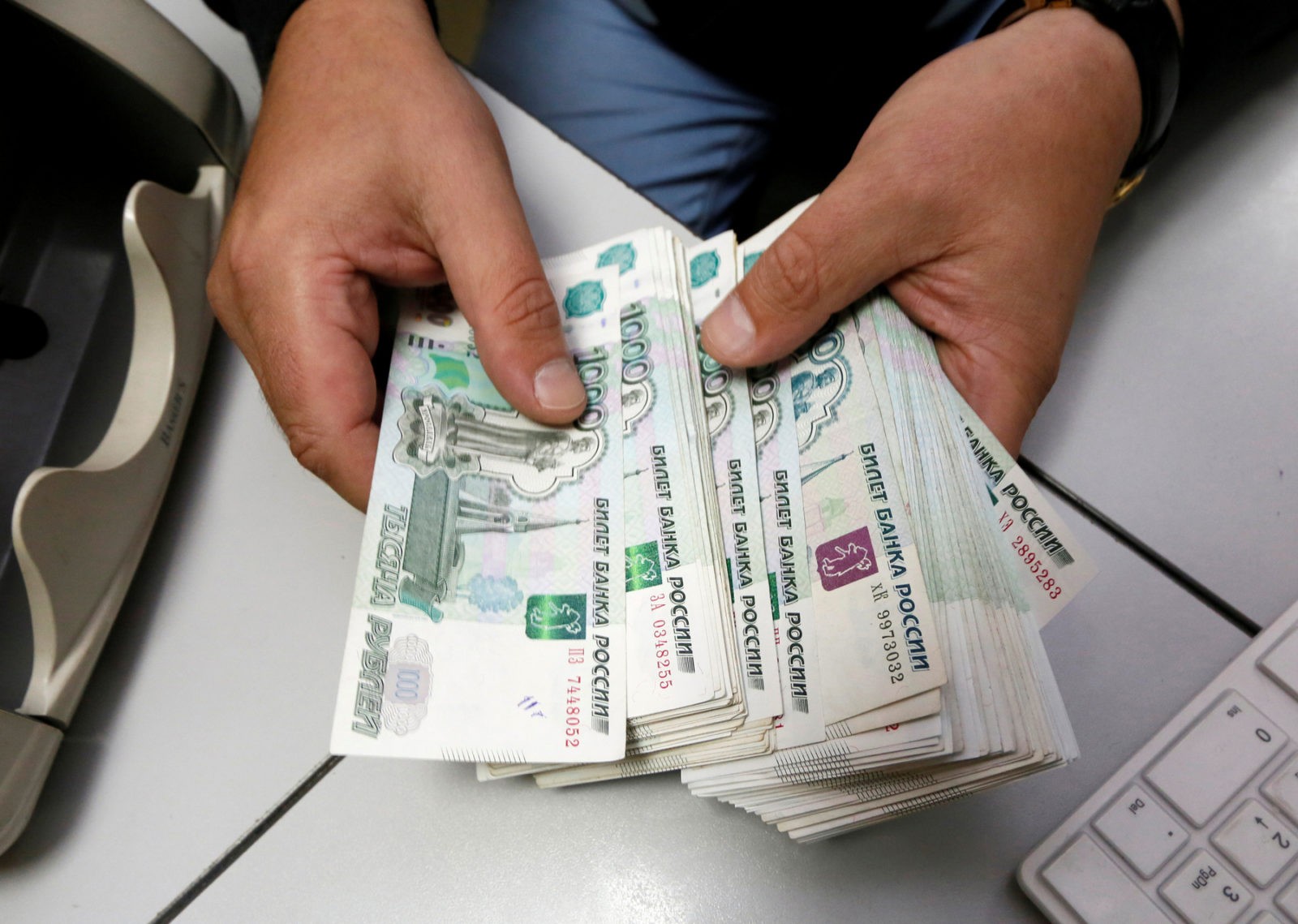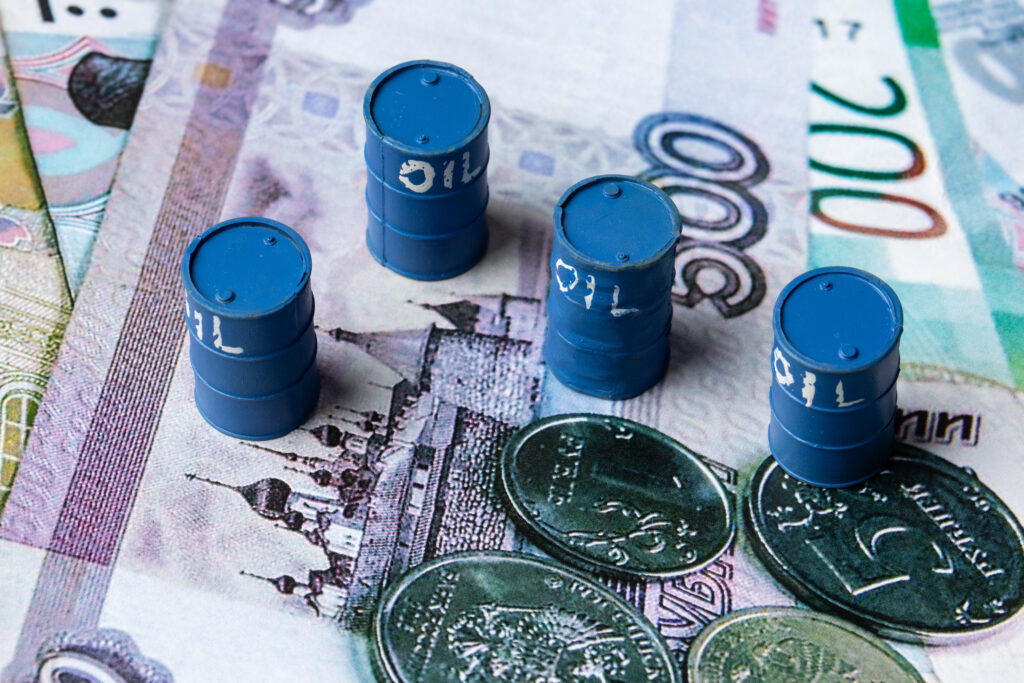Phrases like ‘people are Russia’s replacement oil‘ do not bode well for ordinary Russians. In effect, this sort of rhetoric implies fresh impetus to harvest more taxes in response to budget austerity. Government officials have long considered steady global oil prices over $ 70 as the best way to maintain the social spending levels of the 2000s. But these levels have not been reached at all over the last four years of costly foreign policy misadventures and squandered natural resource extraction. Hence the authorities now feel they have to look beyond oil, and float the idea of ‘farming’ their own people.
This comes alongside the elite’s ‘intense struggle’ for access to budget spending that has been quietly raging since 2016, a process well-documented by Svetlana Barsukova. As those at the top feel the pinch, the general population have had deeper struggles of their own. Russian incomes have stagnated for the last decade. Provision in health and education and entitlements connected to them have deteriorated too. These were the top ‘concerns’ of Russians in 2018. As a result, there is a sense of injustice at the sudden zeal for increasing taxes, fines and related costs on unavoidable expenses like transport or utilities.
While the increase in pension age gets plenty of attention, there are other pressing issues which get limited airtime. For instance, the rising price of petrol and the raise in VAT from 18 to 20 percent. Inflation on vital staples continues to bite, not least because of the fall in incomes in dollar terms. Indirect taxes hit the poorest most, and VAT is levied on utility bills, which already take up around half the income of a person on the ‘minimal income’ ($ 170) and are now adjusted more frequently for inflation. A second issue in the line of fire is largely untaxed income from self-employment. Taxing this bracket cuts across classes, from nannies and tutors to taxi drivers and tradesmen. As Kirill Martinov puts it, the government has declared ‘war on the nannies‘. Most people see these earnings as topping up meagre primary incomes, and interpret the state’s renewed interest in personal taxation as unjust. One more bone of contention is the more general ratcheting up of the punitive tax potential of fines on motorists, late payers of utilities, and other minor law breakers. It is no surprise that a recent poll showed that 46% of Russians cannot plan even for the immediate future.
Prominent observers draw pessimistic conclusions about this ‘extractive turn’. Because they focus on open protest, or the lack of it, they view their fellow citizens as lacking agency. This is in spite of evidence to the contrary. Russia has a massive informal economy that sustains livelihoods and habitability above the bare subsistence level. This shadow economy is disruptive to the state in many ways.
Even so, the economist Vladislav Inozemtsev is prone to despair. He believes that Russians’ ability to resist the extractive state is broken. Does this view make the mistake that only ‘open’ protest is a mark of resistance? Valerii Solovei paints a vivid picture of Russians as passive sponges to be wrung dry by an emboldened state. Where can people hide from taxes on fuel and cigarettes, he asks? Well, research on informal economies predicts that Russians will find ever more ingenious ways of dodging the extraction of their hard-earned rouble. Elsewhere Inozemstev notes that even the Russian government acknowledges that 38 million people’s work and income is opaque to the state. Ordinary, just-about-coping Russians, who daily make decisions about how to live are far from suffering from ‘learned helplessness‘.
Alternative approaches: the infrapolitics of nomads
Even the most marginalised and ‘weak’ people are not as passive as they seem. Over the last three decades people have got used to the informal, networked way Russia is governed — capitalism without capitalists, rule without law, power without responsibility. Samuel Greene argues that where people are forced to adapt to the informalized political and economic social relations, they then actually resist the very institution building and formal bureaucratic ways of ‘normal’ functioning states. This paradox can be expressed simply — Russians want more and less state at the same time. This is due to both socialist-era legacies of paternalism and the traumatic post-socialist transition.
It is ironic that privileged observers view ordinary Russians as ‘sponges’ while using the services of informal workers. Whether it’s nannies or house cleaners, plumbers fixing heating systems, or economic migrants building homes, modest yet cumulatively powerful economic agency is exercised by the vulnerable in escaping the clutches of the extractive state. The informal economy is of course no less exploitative or supportive of inequality. While it indicates the fundamental weakness of the state, it’s as much of a ‘feature’ as it is a ‘bug’.
In thinking about the ‘minor warfare’ people wage against the quantifying state, the French philosopher Gilles Deleuze called this ‘nomadism‘. The concept is an apt framework for the mobile tactics and ‘lines of flight’ of many ordinary Russians. Stuck between penury and the extractive state, the only option for many is movement. There are ‘weak ties’ to help get gigs and perks here and there — siphoning off company fuel for private use, filching some stationery from work, or that oldest forms of nomadism — the informal taxi-driving that supports a million families. Even with more technological ‘fixes’ to stop the informational holes into which millions of people disappear to reappear in informal economic spaces, niches and life hacks will arise. For example, although the Russian state cannot yet link up the database of insured drivers to its impressive network of road cameras, at some point this technological issue will be solved. However, there is already a good pack of nomadic hacks available to every driver. Some, for example, cover their number plates with shoe polish, which gather a thick layer of dust. Other ingenious tricks abound. A simple one revolves around using the inefficiencies of the Russian postal system to challenge the legality of the fine. This is all without mentioning a very Russian phenomenon. Namely, it’s not uncommon for officials tasked with reinforcing the state control to warn ordinary people on how to avoid state penalties, out of compassion, solidarity, or ulterior motives.
A second perspective is to adapt James Scott’s idea of the infrapolitical: ‘the … substratum of those more visible forms of action that attract most scholarly attention’. Scott argues that as «long as we confine our conception of the political to activity that is openly declared, we are driven to conclude that subordinate groups essentially lack a political life» (1990, 199). Many aspects of people’s non-registration of economic activities qualify as the not-quite political. Scott challenges scholarship on dissent to reassess the definition of interventions in the public sphere. His contributions include a critique of hegemony and thus false consciousness, as well as the «safety valve» theory—the notion, for instance, that the patriotic politics around Crimea serve as a distraction from quotidian woes.
Infrapolitics are nurtured by ‘hidden transcripts’. The more the ‘public transcript’ is seen as hypocritical the more it is likely to generate a rich and ‘hidden’ alternative. For example, cynical talk about the importance of the development of human capital and productivity while at the same time hearing that ‘state owes you nothing’, intensifies the creation of counter discourses. Indignities lead to ‘rehearsals’ of injustice and in turn reinforce ‘nomadic’ actions. An enormous wave of memes criticising the pension reforms, sometimes humorously, but often pointedly, are shared through the safety of encrypted messaging services. Two different viral examples illustrate the pointed politicising of the private virtual spaces of dissent. The first is a vlog poem, written and performed by a Urals nurse. Railing against her tiny salary and her inability to feed and nurture her child she asks: ‘Why do you dislike the people so much, they who feed your righteous arses.’ The second is also a video, by a regional Communist deputy. It was disseminated anonymously via Whatsapp and other encrypted messaging services. Parodying the presidential New Year’s message, he declares that ‘friends, we have had a difficult year, like many before it. And the problem here is of course not the Western sanctions… not the ‘lazy people’… but the shameless and deceitful authorities’. One possible state response is to try to shut down the most reliable motor of the infrapolitical — the internet. But as with other authoritarian technological fixes, there will always be hacks, and it’s not even clear if firewalling is possible.
The point is not that there is some inflection point where rage converts to rebellion. Rather, it is that hidden transcripts reinforce the logic of nomadic, state-distancing moments. These could be refusing to register as self-employed, not paying a traffic fine, or having the courage to discuss politics for the first time with acquaintances. Each element gives the other traction. Even though nomadism and infrapolitics work insidiously, they have political significance. They continuously prod at the limits of what can be said in public. While the idea of the state as abstract, distant, and an uncaring entity is ingrained, so is the tactic of nomadism. Last week Vladislav Surkov turned the phrase ‘deep state’ into ‘deep people’ in his eulogy on the greatness of Russia’s system. He might be right about the primacy of the Russian people, but he seems to have forgotten a very Russian saying, that ‘still waters run deep’ [в тихом омуте черти водятся].









